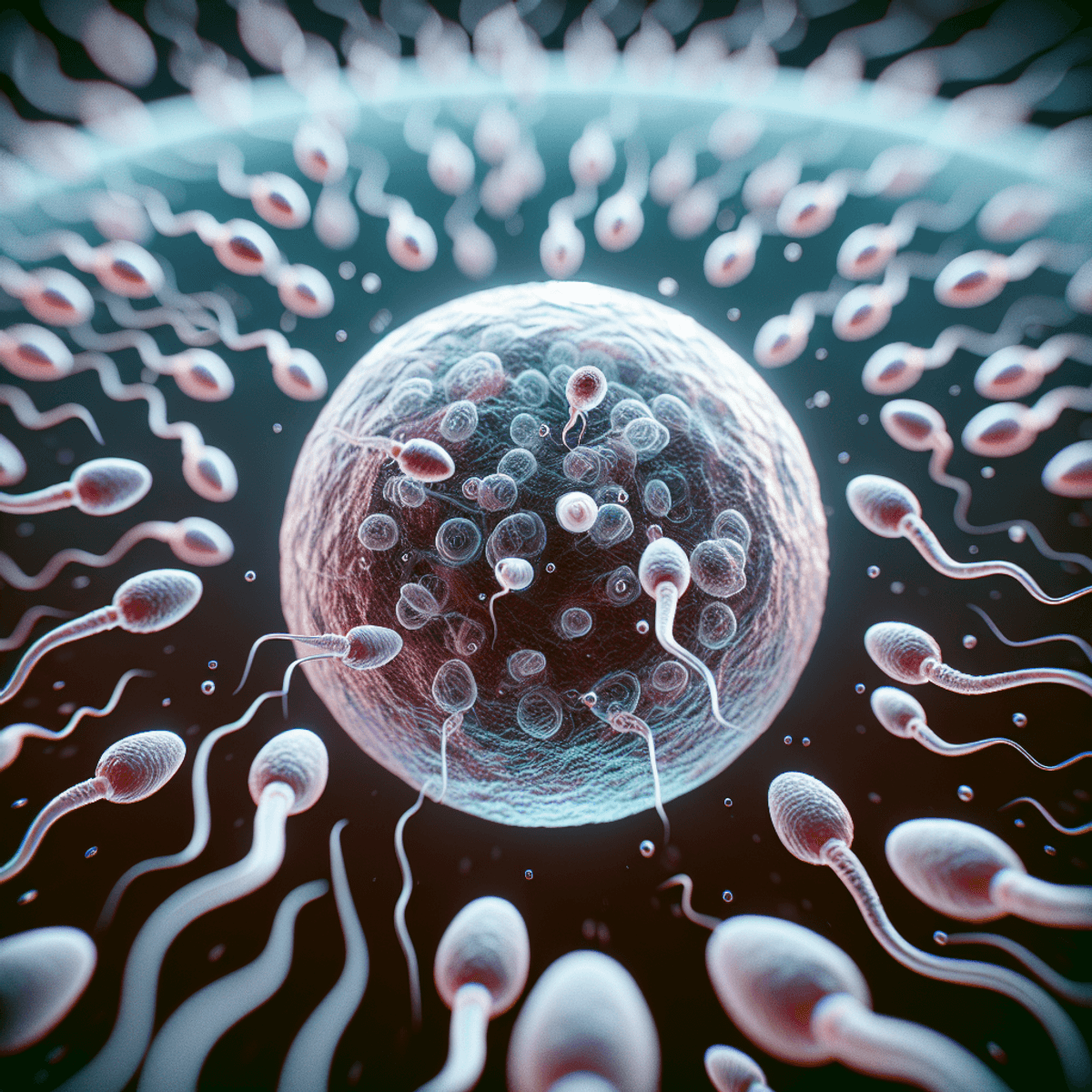Services
How to Impact of Sperm Motility on Fertility
Introduction
Sperm motility is the ability of sperm to move efficiently, playing a crucial role in fertility as it determines a sperm’s capability to reach and fertilize a woman’s reproductive egg. This factor is particularly important in evaluating male fertility and often contributes to 40-50% of infertility cases. Understanding how sperm motility impacts fertility can help couples make informed decisions about their reproductive health.
Key Points:
- Definition and Significance: Sperm motility refers to the movement ability of sperm, essential for successful fertilization.
- Prevalence of Male Factor Infertility: Male factor infertility is a significant concern, with statistics indicating it affects nearly half of all infertility cases. Various factors contribute to this, including damage to the testicles due to infections or conditions like varicocele.
By exploring the complexities of sperm motility and its impact on fertility, individuals can better navigate their journey toward conception.
Understanding Sperm Motility
Sperm motility is a critical factor in male fertility. It refers to the ability of sperm to move efficiently through the female reproductive tract. This movement is essential for reaching and fertilizing an egg. Sperm motility is generally classified into two categories:
- Progressive Motility: Sperm with progressive motility swim in straight lines or large circles, indicating a healthy and effective movement pattern crucial for successful fertilization.
- Non-Progressive Motility: In this category, sperm may swim in tight circles or exhibit minimal movement, failing to progress towards an egg.
A condition known as asthenozoospermia is diagnosed when less than 32% of sperm display progressive motility. This condition represents a significant barrier to conception due to the sperm’s inability to reach and penetrate the egg.
The implications of asthenozoospermia are profound, as it often necessitates medical intervention for those wanting to conceive. Understanding these classifications helps in identifying potential fertility challenges early on and exploring necessary treatments or lifestyle alterations that could enhance sperm motility. Recognizing the movement patterns of sperm is vital in assessing male fertility health and directing appropriate interventions.
The Impact of Poor Sperm Motility on Fertility
Poor sperm motility significantly impacts the ability to fertilize an egg. Sperm must effectively swim through the cervix, into the uterus, and ultimately reach the egg for successful fertilization to occur. Without adequate motility, this journey becomes unlikely.
This challenge is often compounded by other sperm parameters such as low sperm count (oligospermia) and abnormal sperm shape (teratospermia). Each factor plays a critical role in fertility; together, they create substantial barriers to conception. For instance, even if enough sperm are present, their inability to move properly or their irregular shapes can prevent them from reaching and penetrating the egg.
Male factor infertility is a prevalent issue, affecting approximately 60 to 80 million couples worldwide. Within this group, poor sperm motility is a common contributor. When combined with low sperm count or abnormal morphology, it underscores the complexity of male infertility challenges.
Understanding these interactions highlights the importance of addressing all aspects of sperm health in fertility treatments. Comprehensive evaluations that consider motility alongside count and shape are essential in developing effective intervention strategies to enhance reproductive outcomes. Furthermore, recognizing that poor sperm motility can be an isolated issue or part of a larger fertility problem is crucial for tailoring appropriate treatment plans.
Causes of Poor Sperm Motility
Understanding the causes behind poor sperm motility can help address fertility challenges effectively. There are several factors that can significantly impact sperm motility:
Medical Conditions
- Testicular Damage: Conditions such as testicular cancer or infections can severely impair sperm production and motility.
- Varicocele: Enlarged veins in the scrotum, known as varicocele, affect blood flow and temperature regulation, compromising testicular health and reducing motility.
Lifestyle Factors
- Smoking and Drug Use: Harmful substances found in cigarettes and recreational drugs can damage sperm DNA and reduce their ability to move efficiently.
- Obesity: Excess body weight is linked to hormonal imbalances and increased scrotal temperature, both detrimental to sperm health.
Addressing these underlying causes can pave the way for improved reproductive outcomes. By identifying specific medical conditions or lifestyle habits contributing to poor sperm motility, targeted interventions can be implemented to enhance fertility prospects.
Diagnosis and Treatment Options for Poor Sperm Motility
Semen analysis is the main method for diagnosing poor sperm motility. This test looks at how sperm moves in a sample, finding any movement issues that might affect fertility. During this process, lab experts check various factors like sperm count, concentration, and shape. In cases of low motility, they often find a high number of sperm that don’t move or move slowly.
When dealing with fertility problems due to low sperm motility, there are several treatment options available. Assisted Reproductive Technologies (ART) play a crucial role in overcoming these challenges. Two well-known procedures include:
- Intrauterine Insemination (IUI): This method involves placing washed and concentrated sperm directly into the uterus around the time of ovulation, increasing the chances of fertilization by avoiding physical barriers.
- In Vitro Fertilization (IVF): A more advanced technique where eggs are taken from the ovaries and fertilized by sperm outside the body. Once embryos form, they are placed back into the uterus for potential implantation.
Both IUI and IVF offer promising solutions for couples struggling with infertility caused by poor sperm motility. Through these treatments, many have achieved successful pregnancies despite initial difficulties with male factor infertility.
DAD Ayurveda’s Approach to Male Fertility Enhancement
DAD Ayurveda takes a holistic approach to fertility, focusing on balancing the body, mind, and spirit to improve reproductive health. This philosophy combines traditional Ayurvedic principles with modern insights to tackle issues like poor sperm motility.
Natural Remedies and Treatments
DAD Ayurveda offers various natural remedies aimed at enhancing sperm motility:
- Herbal Supplements: Using powerful herbs like Ashwagandha and Shilajit, known for their ability to increase energy levels and improve sperm quality.
- Dietary Adjustments: Customized diet plans rich in antioxidants and essential nutrients designed to support reproductive health.
- Lifestyle Recommendations: Promoting activities such as yoga and meditation to lower stress levels, which can negatively impact fertility.
Testimonials and case studies demonstrate the effectiveness of these treatments. Many individuals have reported significant improvements in sperm motility after following DAD Ayurveda’s protocols, showing the potential benefits of these holistic approaches on fertility. 
Conclusion: Seeking Help for Male Infertility Issues
Dealing with the effects of sperm motility on fertility calls for a proactive approach. If you and your partner are experiencing infertility issues, it’s essential to seek professional help. With medical treatments improving and lifestyle changes potentially making a difference, there’s hope in the path to conception. Whether it’s learning how to affect sperm motility on fertility through scientific ways or looking into natural remedies, there are resources and answers out there. Don’t hesitate to get expert guidance and explore the options for boosting fertility health.
FAQs (Frequently Asked Questions)
What is sperm motility and why is it significant for fertility?
Sperm motility refers to the ability of sperm to move efficiently. It is classified into progressive motility, where sperm swim forward effectively, and non-progressive motility, where sperm do not swim as well. Sperm motility is crucial for fertility because it directly impacts the sperm’s ability to reach and fertilize a woman’s egg.
How does poor sperm motility affect fertility?
Poor sperm motility can hinder the ability of sperm to fertilize an egg, which is essential for conception. It often correlates with other factors like low sperm count (oligospermia) and abnormal sperm shape (teratospermia). Statistics show that around 60 to 80 million couples are affected by infertility due to male factors, including poor sperm motility.
What are some common causes of poor sperm motility?
Common causes of poor sperm motility include medical conditions such as testicular damage, infections, and varicocele (enlarged veins in the testicles). Lifestyle factors like smoking, drug use, obesity, and exposure to environmental toxins can also negatively impact sperm quality.
How is poor sperm motility diagnosed?
Poor sperm motility is typically diagnosed through a semen analysis. This process evaluates various parameters of the semen, including the percentage of motile sperm. Common findings related to poor motility can help healthcare providers determine the underlying issues affecting fertility.
What treatment options are available for low sperm motility?
Treatment options for couples facing fertility issues due to low sperm motility may include assisted reproductive technologies such as Intrauterine Insemination (IUI) and In Vitro Fertilization (IVF). Additionally, addressing lifestyle factors and underlying medical conditions can also improve outcomes.
How does DAD Ayurveda approach male fertility enhancement?
DAD Ayurveda offers holistic approaches to enhance male fertility by focusing on natural remedies and treatments aimed at improving sperm motility. Their philosophy includes lifestyle changes and personalized treatment plans supported by testimonials showcasing successful case studies.








